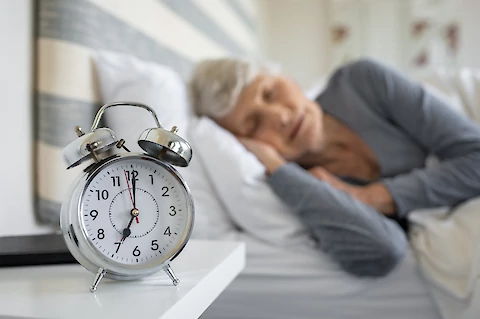
Changing from daylight to standard time may happen in seconds, but its effects can be felt for days or weeks. The change disrupts sleep patterns and increases fatigue. They throw off meal schedules and exercise routines. These disruptions become more pronounced with age.
How to Prepare for a Time Change
In northern locations such as Erie, Pennsylvania, returning to standard time also means decreasing daylight hours. With less daylight, people tend to sleep more and exercise less. For some, it can lead to seasonal affective disorder (SAD).
The best way to minimize the impact of an upcoming change is to prepare. Beginning a few days before the scheduled change, try the following:
- Bedtime. Adjust your bedtime by 15 minutes each day. The gradual change makes adjusting easier on the day of the change.
- Naps. Avoid taking naps that exceed 20 minutes. Excessive napping prolongs the adjustment period.
- Meals. Try adjusting meal schedules slightly each day. Go with lighter menus if not hungry, but monitor blood sugar levels throughout the day.
- Timers. Most devices, such as smartphones and TVs, change time automatically. However, timers on appliances or lights may not. Be sure these timers are set to maintain the schedule after the time changes.
- Medication. Check with a physician if someone has time-sensitive medication. For example, insulin may need adjusting during the first days after a time change. Check timers on electronic reminders to ensure prescribed treatments are performed on schedule.
- Exercise. Regardless of the time change, make sure to exercise. This is especially important for those who experience seasonal depression. Being out and active during daylight hours helps keep circadian rhythms on schedule.
- Driving. Disrupted sleep makes for poor drivers. Be sure to get plenty of sleep before driving or ask someone else to drive if necessary.
Seniors often have difficulty sleeping and may experience sleep disruptions that prevent a sustained night's sleep. Time changes compound the problem.
Sundowning
The return to standard time decreases daylight hours which contributes to late-day confusion or sundowning. To minimize the impact on seniors, consider the following:
- Turn on lights earlier in the day.
- Schedule appointments and activities early for maximum sun exposure.
- Limit caffeine to the morning hours.
Engaging seniors in mental or physical activities during the day can lessen the impact of late-day confusion. Also, redirecting their focus by playing soothing music or another calming activity can help reduce sundowning.
SAD
The seasonal affective disorder occurs in less than 5% of the population; however, a Yale study found that over 10% of those living in northern states such as Pennsylvania experience the disorder. The incidence rate for SAD does not appear to increase with age, although those with the disorder often find the symptoms worsen as they grow older. Recommended treatment includes light therapy, psychotherapy, and antidepressants.
Senior Helpers
With November 6 rapidly approaching, now is a good time to check on seniors. If they need help adjusting to time changes or could benefit from in-home care to counter the impact of winters in Erie and Warren, contact Senior Helpers. Our staff in Erie can provide companionship and care to ensure those over the age of 65 adjust to changes in time and seasons.